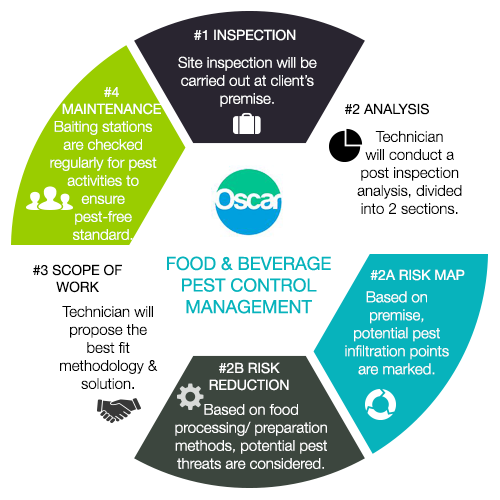Securing Your Attic From Rodents: Key Guidance For Homeowners
Securing Your Attic From Rodents: Key Guidance For Homeowners
Blog Article
Content Writer-Thybo Bay
Visualize your attic room as a comfortable Airbnb for rodents, with insulation as fluffy as resort pillows and wiring much more attracting than room solution. Currently, think of these unwanted visitors throwing a wild celebration in your home while you're away. As a house owner, guaranteeing your attic is rodent-proof is not nearly assurance; it has to do with shielding your property and liked ones. So, what straightforward actions can you take to guard your sanctuary from these hairy intruders?
Examine for Entrance Things
To start rodent-proofing your attic, evaluate for access factors. Begin by carefully analyzing the exterior of your home, searching for any kind of openings that rodents can use to access to your attic. Look for spaces around energy lines, vents, and pipes, along with any kind of splits or holes in the foundation or home siding. See to it to pay very close attention to locations where various structure products meet, as these are common entrance factors for rats.
Additionally, evaluate the roof covering for any harmed or missing roof shingles, as well as any gaps around the sides where rats can squeeze via. Inside the attic room, search for indications of existing rodent activity such as droppings, chewed cords, or nesting materials. Utilize please click the following page to thoroughly inspect dark corners and surprise spaces.
Seal Cracks and Gaps
Check your attic room completely for any splits and voids that need to be secured to prevent rats from going into. Rodents can squeeze with even the smallest openings, so it's essential to secure any possible access points. Check around pipelines, vents, cords, and where the walls fulfill the roof. Utilize a combination of steel wool and caulking to seal these openings efficiently. Steel wool is an excellent deterrent as rats can't eat with it. Guarantee that all voids are firmly sealed to reject accessibility to undesirable insects.
Do not neglect the importance of securing voids around windows and doors also. Use weather stripping or door sweeps to seal these areas efficiently. Inspect the areas where utility lines get in the attic room and seal them off using an ideal sealant. By taking the time to seal all fractures and gaps in your attic, you develop a barrier that rats will locate tough to violation. Prevention is type in rodent-proofing your attic room, so be thorough in your initiatives to seal off any type of potential entry factors.
Remove Food Sources
Take proactive procedures to remove or keep all prospective food sources in your attic room to prevent rodents from infesting the room. Rats are brought in to food, so removing their food resources is critical in keeping them out of your attic.
Here's what you can do:
1. ** Store food securely **: Avoid leaving any kind of food products in the attic. Store all food in closed containers made from steel or heavy-duty plastic to stop rats from accessing them.
2. ** Clean up particles **: Eliminate any heaps of particles, such as old papers, cardboard boxes, or wood scraps, that rodents might utilize as nesting product or food sources. Keep just click the following internet site -free to make it less enticing to rodents.
3. ** Dispose of trash correctly **: If you utilize your attic room for storage and have waste or waste up there, ensure to dispose of it consistently and properly. Rotting trash bin draw in rats, so keep the attic clean and devoid of any type of natural waste.
Verdict
To conclude, keep in mind that an ounce of avoidance is worth an extra pound of cure when it involves rodent-proofing your attic.
By making the effort to evaluate for access factors, seal cracks and gaps, and remove food sources, you can keep undesirable pests away.
Bear in mind, 'An ounce of avoidance is worth an extra pound of cure' - Benjamin Franklin.
Keep positive and protect your home from rodent infestations.
